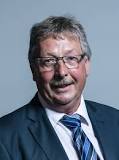John Healey – 2022 Speech on the Situation in Ukraine
The speech made by John Healey, the Shadow Secretary of State for Defence, in the House of Commons on 25 April 2022.
I thank the Secretary of State for his statement. His presence is welcomed this afternoon by the whole House. We know that it is not entirely his fault, but it is nearly seven weeks since he was last able to give us a statement on the situation in Ukraine. That was the day after President Zelensky addressed this House. The Secretary of State said then, as he did this afternoon, that he would keep the House up to date. May I say, on behalf of the public, that we would welcome more regular statements as the Russian war on Ukraine continues?
Like the Secretary of State, we salute the bravery of the Ukrainian people, military and civilians alike. That bravery is led by President Zelensky personally, but it is typified by the military last stand of the troops at the Azovstal steel plant and by the people’s resistance in Russian-occupied Kherson. We also renew our total condemnation of this brutal Russian invasion of a sovereign country and our determination to see that all those responsible for the mass graves in Mariupol, for the crimes, rapes and assassinations in Bucha and for the civilian bombings in almost every town and city across Ukraine are pursued to the end for their war crimes.
We welcome the role that the UK is playing and the further UK military assistance to Ukraine that the Secretary of State has outlined today, which has Labour’s full support. He says the UK has provided 5,000 anti-tank missiles and 100 anti-air missiles, but these direct donations are a fraction of the total. Can he tell us the total of such weapons provided so far by western allies? Has the MOD yet signed contracts and started production of replacement next-generation light anti-tank weapons and Starstreak missiles?
This is the first day of the third month of Putin’s invasion, and it is a new phase, as the Defence Secretary said. What is needed now is no longer old, spare weapons from the Soviet era but the new NATO weapons that Ukraine will need for Putin’s next offensive against Odessa or Kyiv. We need to shift from crisis management in response to the current conflict to delivering the medium-term military support that Ukraine will need. What is he doing to ensure this step change in support?
Given that 5 million refugees have now left Ukraine, what is the Secretary of State doing to offer the 700 personnel still held at high readiness in the UK for humanitarian help? Is it still the case that the MOD has offered only 140 armed forces personnel to help sort out the shameful shambles of the Home Office’s visa and refugee systems?
I just got off the tube after visiting NATO’s Allied Maritime Command in Northwood. They took my phone off me, so I did not realise we were having this statement, which is why I am using handwritten notes this afternoon. This is a proud, professional, British-led multinational command, and I pay tribute to it for the work it is doing, day in and day out, to keep us all safe.
NATO has proved to be such a powerful security alliance because it pools multinational military capacity, capability and cash, with an annual budget of more than $1 trillion, to protect 1 billion people, but Ukraine reminds us that the greatest threat to UK security lies in Europe, the north Atlantic and the Arctic, not in the Indo-Pacific. This reinforces NATO as the UK’s primary security obligation, but the Secretary of State gave us only a paragraph on NATO.
Our leadership in NATO could be at risk as Britain falls behind our allies in responding to this invasion of Ukraine. More than a dozen European countries are now rebooting security plans and defence spending, but the UK has not yet done either. I therefore urge the Secretary of State to revisit the integrated review, to review defence spending, to reform military procurement and to rethink his Army cuts. We will be dealing with the consequences of Putin’s war for many years to come, and now is the time for longer-term thinking about how the strategy for European security must change.


